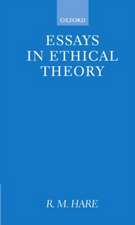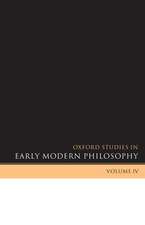Karl Popper's Philosophy of Science: Rationality without Foundations: Routledge Studies in the Philosophy of Science
Autor Stefano Gatteien Limba Engleză Paperback – 3 noi 2010
| Toate formatele și edițiile | Preț | Express |
|---|---|---|
| Paperback (1) | 479.29 lei 6-8 săpt. | |
| Taylor & Francis – 3 noi 2010 | 479.29 lei 6-8 săpt. | |
| Hardback (1) | 874.34 lei 6-8 săpt. | |
| Taylor & Francis – 3 noi 2008 | 874.34 lei 6-8 săpt. |
Din seria Routledge Studies in the Philosophy of Science
-
 Preț: 370.09 lei
Preț: 370.09 lei -
 Preț: 312.20 lei
Preț: 312.20 lei -
 Preț: 311.39 lei
Preț: 311.39 lei -
 Preț: 314.92 lei
Preț: 314.92 lei -
 Preț: 490.25 lei
Preț: 490.25 lei -
 Preț: 384.31 lei
Preț: 384.31 lei - 18%
 Preț: 903.36 lei
Preț: 903.36 lei - 18%
 Preț: 1118.82 lei
Preț: 1118.82 lei -
 Preț: 409.10 lei
Preț: 409.10 lei - 18%
 Preț: 999.64 lei
Preț: 999.64 lei - 18%
 Preț: 1001.70 lei
Preț: 1001.70 lei -
 Preț: 482.53 lei
Preț: 482.53 lei -
 Preț: 485.61 lei
Preț: 485.61 lei -
 Preț: 431.35 lei
Preț: 431.35 lei - 8%
 Preț: 384.58 lei
Preț: 384.58 lei -
 Preț: 356.63 lei
Preț: 356.63 lei -
 Preț: 380.07 lei
Preț: 380.07 lei -
 Preț: 389.66 lei
Preț: 389.66 lei -
 Preț: 341.81 lei
Preț: 341.81 lei - 14%
 Preț: 313.82 lei
Preț: 313.82 lei - 18%
 Preț: 1000.30 lei
Preț: 1000.30 lei -
 Preț: 383.89 lei
Preț: 383.89 lei -
 Preț: 384.86 lei
Preț: 384.86 lei -
 Preț: 428.74 lei
Preț: 428.74 lei -
 Preț: 482.56 lei
Preț: 482.56 lei -
 Preț: 395.47 lei
Preț: 395.47 lei -
 Preț: 433.26 lei
Preț: 433.26 lei - 20%
 Preț: 938.05 lei
Preț: 938.05 lei - 18%
 Preț: 1007.23 lei
Preț: 1007.23 lei -
 Preț: 443.65 lei
Preț: 443.65 lei
Preț: 479.29 lei
Nou
Puncte Express: 719
Preț estimativ în valută:
91.71€ • 95.75$ • 75.90£
91.71€ • 95.75$ • 75.90£
Carte tipărită la comandă
Livrare economică 04-18 aprilie
Preluare comenzi: 021 569.72.76
Specificații
ISBN-13: 9780415887762
ISBN-10: 0415887763
Pagini: 154
Dimensiuni: 152 x 229 x 8 mm
Greutate: 0.22 kg
Ediția:1
Editura: Taylor & Francis
Colecția Routledge
Seria Routledge Studies in the Philosophy of Science
Locul publicării:Oxford, United Kingdom
ISBN-10: 0415887763
Pagini: 154
Dimensiuni: 152 x 229 x 8 mm
Greutate: 0.22 kg
Ediția:1
Editura: Taylor & Francis
Colecția Routledge
Seria Routledge Studies in the Philosophy of Science
Locul publicării:Oxford, United Kingdom
Public țintă
PostgraduateCuprins
Introduction: Critical Rationalism Chapter 1: Young Popper’s Intellectual Revolution Chapter 2: Science and Philosophy Chapter 3: Metaphysics Chapter 4: Popper and Kuhn: Clashing Metaphysics Chapter 5: The Ethical Nature of Popper’s Understanding of Rationality
Notă biografică
Stefano Gattei graduated in Philosophy in Milan and was awarded a Ph.D. in Philosophy of Science at the University of Bristol, with a dissertation on Thomas Kuhn’s "linguistic turn" and the legacy of Logical Positivism. After lecturing in Milan, Padua, Vercelli and Pisa, he was fellow at Columbia University and is currently assistant professor at the IMT Institute for Advanced Studies, Lucca.
He has published widely on contemporary issues in the philosophy of science, ranging from the incommensurability thesis, the dynamic of conceptual change, rationality, relativism, and relativism. Presently, he is a member of the Philosophy of Science Association, of the British Society for the Philosophy of Science, of the SILFS, Società Italiana di Logica e Filosofia delle Scienze and of the Società italiana di storici della fisica e dell'astronomia.
He has published widely on contemporary issues in the philosophy of science, ranging from the incommensurability thesis, the dynamic of conceptual change, rationality, relativism, and relativism. Presently, he is a member of the Philosophy of Science Association, of the British Society for the Philosophy of Science, of the SILFS, Società Italiana di Logica e Filosofia delle Scienze and of the Società italiana di storici della fisica e dell'astronomia.
Recenzii
Gattei's Karl Popper's Philosophy of Science is an important reassertion of the value, novelty, and coherency of Popper's programme. It is an important historiographical contribution, particularly because it leads us to reevaluate our tradition of painting Kuhn as an epistemological radical, when that title more properly belongs to Popper. - Friedrich Stadler and Miles MacLeod, both of University of Vienna, Notre Dame Philosophical Reviews, 2009-07-35
"Looking back at the philosophical literature of the mid-twentieth-century, we find most of its classics sink into oblivion and others shrink in significance, while the writings of Karl Popper loom ever larger. Young readers want to know why. A book that answers this question must be faithful to the original, offer intelligent perspectives, and above all be reader-friendly. Any work that answers this requirement is welcome. Stefano Gattei answers these criteria with flying colors. Popper's theory of science is the first and still the only one that explains the great intellectual value of both Newton's and Einstein's theory of gravity while recognizing the superiority of the latter. In the same manner it is still the only theory of knowledge that makes sense of parliamentary democracy. It is not the last word, as Popper's followers have offered criticism and modifications of his ideas. In the spirit of Popper's philosophy, Gattei ménages to present these criticisms of the master respectfully, in a remarkable sense of proportion."
Joseph Agassi
York University, Canada, and Tel Aviv University, Israel
"Gattei's impressive book offers a very effective reading and defence of the crucial aspects of Karl Popper's philosophy of natural science. It makes excellent use of recently-published work on the early phases of Popper's career, and guides the reader through the development of Popper's views in a way that is both original and valuable. The stark confrontation it presents between Popper's views and those of Thomas Kuhn is something that philosophers of science must now address."
John M. Preston
University of Reading, UK
"Looking back at the philosophical literature of the mid-twentieth-century, we find most of its classics sink into oblivion and others shrink in significance, while the writings of Karl Popper loom ever larger. Young readers want to know why. A book that answers this question must be faithful to the original, offer intelligent perspectives, and above all be reader-friendly. Any work that answers this requirement is welcome. Stefano Gattei answers these criteria with flying colors. Popper's theory of science is the first and still the only one that explains the great intellectual value of both Newton's and Einstein's theory of gravity while recognizing the superiority of the latter. In the same manner it is still the only theory of knowledge that makes sense of parliamentary democracy. It is not the last word, as Popper's followers have offered criticism and modifications of his ideas. In the spirit of Popper's philosophy, Gattei ménages to present these criticisms of the master respectfully, in a remarkable sense of proportion."
Joseph Agassi
York University, Canada, and Tel Aviv University, Israel
"Gattei's impressive book offers a very effective reading and defence of the crucial aspects of Karl Popper's philosophy of natural science. It makes excellent use of recently-published work on the early phases of Popper's career, and guides the reader through the development of Popper's views in a way that is both original and valuable. The stark confrontation it presents between Popper's views and those of Thomas Kuhn is something that philosophers of science must now address."
John M. Preston
University of Reading, UK
Descriere
Rectifying misrepresentations of Popperian thought with a historical approach to Popper’s philosophy, Gattei reconstructs the logic of Popper’s development to show how one problem and its tentative solution led to a new problem.














